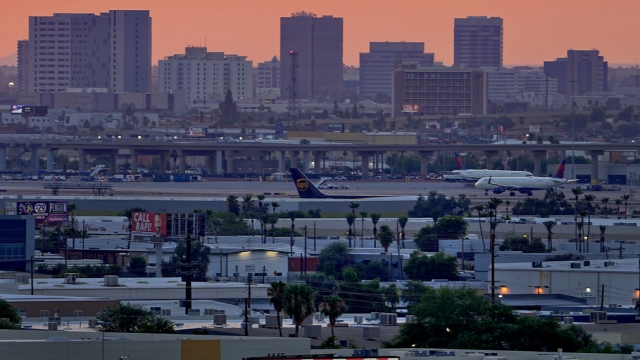More than 100 million Americans are waking up under extreme heat conditions Thursday morning, and it's only going to get hotter over the next few days.
Heat advisories are in effect in the Southwest — Texas, Oklahoma, Arizona — and all along the Gulf Coast. On the West Coast, the high temperatures are sparking more wildfire concerns.
Texas suffered from a brutal heatwave last month, and this one could be worse.
All across the Lone Star State, the real air temperature will hit triple digits. It’s been over 100 degrees Fahrenheit in El Paso for 27 days straight, and the National Weather Service says there could be record-breaking heat Saturday through Tuesday. In Dallas, people have seen triple-digit temperatures for the last seven days.
Texans are using a lot of power to stay cool; the Electric Reliability Council of Texas predicts they could set power demand records this week but clarifies they are not expecting any outages as they have enough power to get through these next few days.
All that seems downright cool compared to Phoenix, where it has been over 110 degrees for almost two weeks and could hit 118 this weekend.
And in Las Vegas, temperatures could reach a high of 117 degrees on Sunday and Monday.
NWS warned that southern parts of California will experience the hottest weather of the year; the heat dome is stretching into California’s San Joaquin Valley, where they are expected to get all-time highs of 117.
On the East Coast, Florida is experiencing the hottest year on record. Miami keeps setting daily records in the mid-90s with heat indexes near 110.
"We have very clear evidence that global warming is the primary driver of that increase in the frequency of severe heat and the increase in the co-occurrence of severe heat," said Stanford University climate scientist Noah Diffenbaugh.
Overall, this is now a dangerous and historic heatwave.
SEE MORE: What extra-warm oceans around Florida might mean for 2023 hurricanes
Trending stories at Scrippsnews.com




